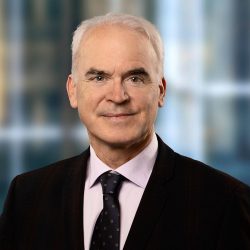
Bio
Paul Beaudry served as Deputy Governor from February 2019 until his retirement from the Bank of Canada in July 2023.
As a member of the Bank’s Governing Council, he shared responsibility for decisions regarding monetary policy, the stability of the financial system and the strategic direction of the Bank. Mr. Beaudry also oversaw the Bank’s analysis of international economic developments and served as the Bank’s G7 and G20 Deputy.
Before joining the Bank as Deputy Governor, Mr. Beaudry was a professor at the University of British Columbia’s Vancouver School of Economics. He began his academic career in 1989 as an assistant professor at the Université de Montréal. From 1990 to 1994, he was an assistant professor at Boston University. Mr. Beaudry has been a visiting professor at the European University Institute, the Massachusetts Institute of Technology (MIT), Nuffield College at Oxford University, Sorbonne (Paris I) and the University of Toulouse. From 2009 to 2010, he was the Chair in Economics at All Souls College at Oxford University.
Mr. Beaudry is also a two-time winner of the Bank’s Research Fellowship Award. He was awarded the Canada Research Chair in Macroeconomics (2000–15) and was the 2008 recipient of the John Rae Prize from the Canadian Economics Association. He is a Fellow of the Royal Society of Canada and a Research Associate at the National Bureau of Economic Research.
Born in Montréal, Quebec, Mr. Beaudry received a bachelor’s degree in economics from Laval University, a master’s degree in economics from the University of British Columbia and a PhD in economics from Princeton University.